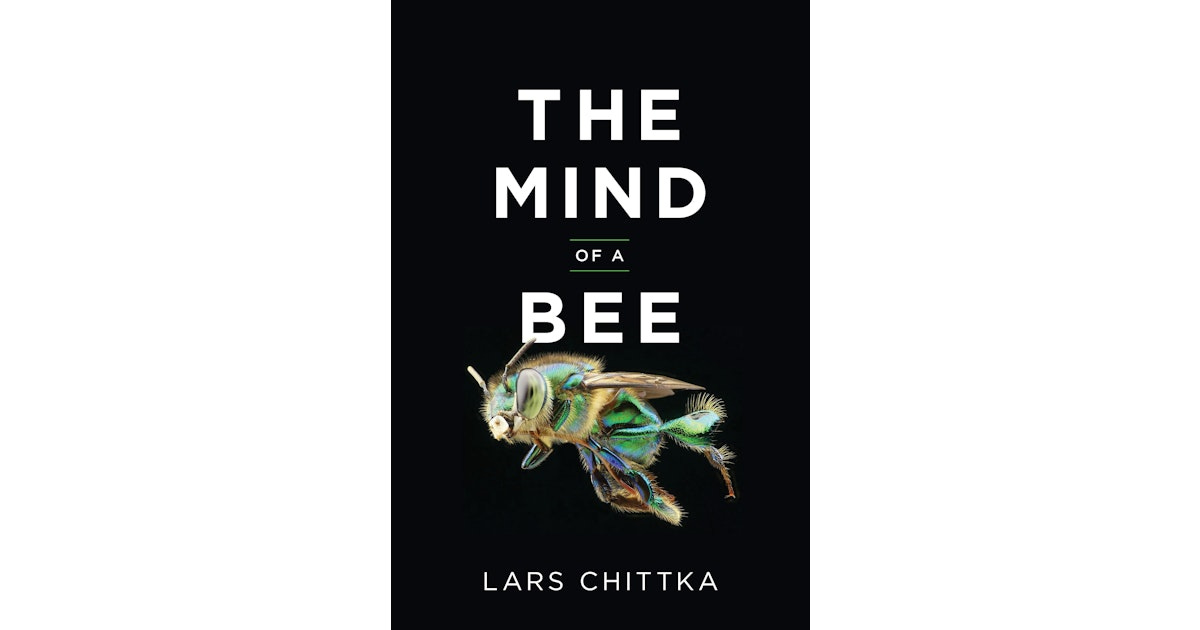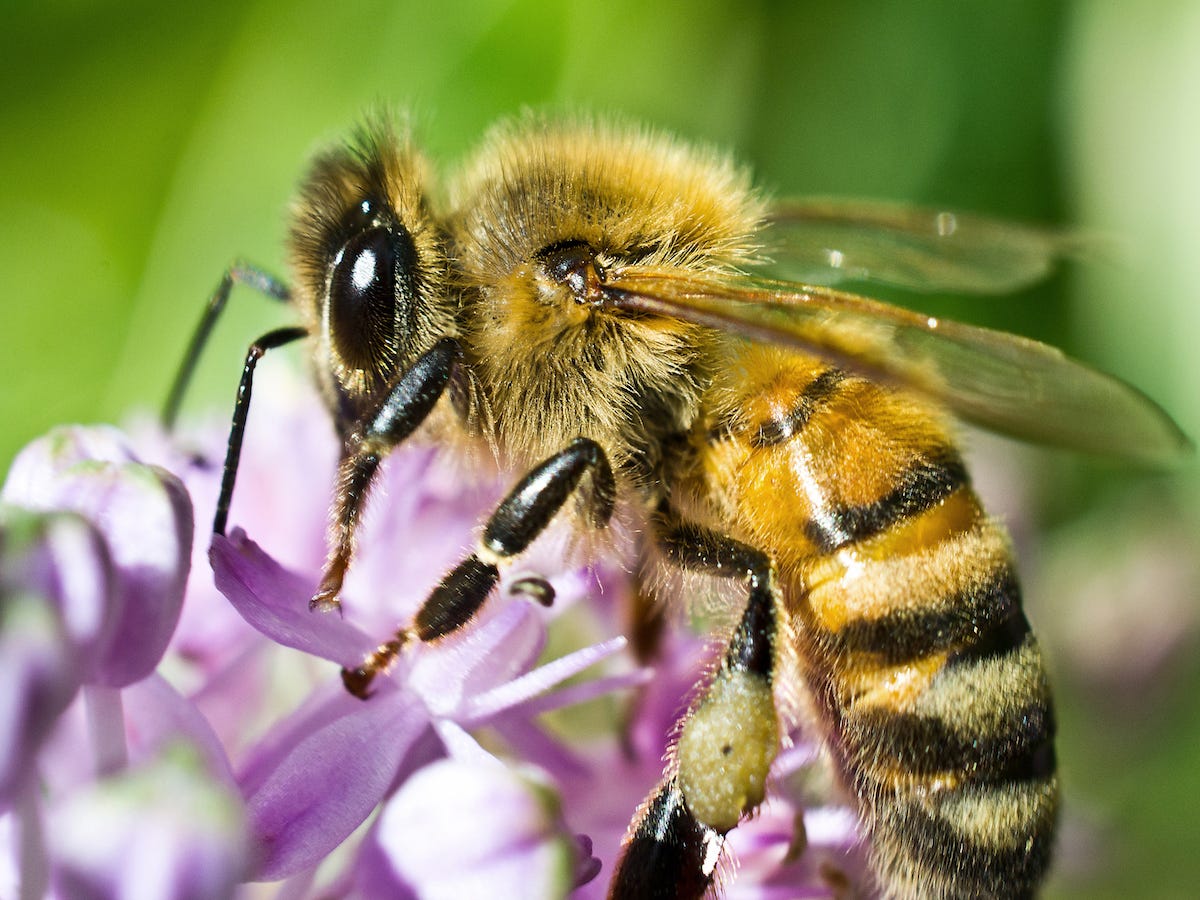So how does this little insect navigate between distant flower patches and the nest? That’s just one of the questions that bee researcher Lars Chittka seeks to answer.
Chittka’s book, The Mind of a Bee (Princeton University Press) not only covers bee navigation but explores research by himself and others that demonstrate that bees have distinct personalities, can recognize flowers, solve problems, and learn through observation. In short, bees are smart
.
The “simple” act of navigation alone is not a trivial challenge, said Chittka, outlining the hurdles faced as bees solve “the traveling salesman problem.” That’s the matter of visiting multiple locations that may be well apart from one another in hard-to-distinguish environments in the most efficient manner possible.
The bee’s complex array of senses including being able to see ultraviolet light (something humans can’t do), are part of what sets it apart, said the author.
Research also indicates that bees may be able to use the Earth’s magnetic field to aid them in navigation or the location of a nest.
There’s nothing new about all this interest in bees. The ancient Egyptians studied bees while evidence of Mayan honey production in Mesoamerica is over 1,000 years old.
Chittka details his work as well as that done by other researchers, indicating that the guys doing the experiments are often stories in themselves.
Martin Lindauer was injured while serving in the German army during World War II. As a result, he was sent home from the Russian front, a fact that probably saved his life since his entire company was virtually wiped out, stated Chittka. After attending a lecture by Karl von Frisch, the German scientist and Nobel Prize winner (for his work on bee communication through dance behavior), Lindauer caught the bee bug and went into research himself, carrying on even as Allied bombs fell.
After the war, Lindauer conducted his own breakthrough experiments while starting a succession of bee researchers. Among those studying under him was Randolf Menzel, a scientist who became established in his own right. Among the graduate students that Menzel attracted was Lars Chittka, now having researched the subject for more than 40 years.
Another bee researcher highlighted in The Mind of a Bee is Charles Turner, an African American born two years after the Civil War. By the age of 25, Turner had published articles in some of the most prestigious scientific journals of his day, said Chittka, noting that because of his ethnicity, Turner was never able to land a position at a college or university. Instead, Turner conducted his experiments as a science teacher at Sumner High School in St. Louis.
“His research was remarkable in identifying individual differences among insects,” said Chittka. “Contrary to the beliefs of the day, Turner believed that animals could think. He was a century ahead of his time with his research.”
The honeybees, those roving pollen gatherers, live only a few weeks while a queen bee may live up to seven years, Chittka said. He added that the managed honeybees, those maintained by beekeepers and used in agriculture, are not endangered. Wild bees, however, face many obstacles. Like many other animals, wild bees are endangered through pesticide use and modern farming practices, said Chittka. Monoculture farming, the practice of growing the same crop in the same field year after year, reduces opportunities for bees who seek plant variety, he said.
But people can help the situation by planting a bee-friendly garden or flower box, said Chittka. Goldenrod, Bee Balm, Black Eyed Susan, Foxglove, Hosta, Coneflower, Zinnia, Marigold, and Sunflower are just some of the flowers that draw bees.
While bee research is hundreds of years old, Chittka feels that bee research is like a magic well. “After coming up with a conclusion, some new riddle always emerges,” he said, adding that exploring whether bees are conscious beings will likely consume his research efforts in the future
.















Is God a bee?